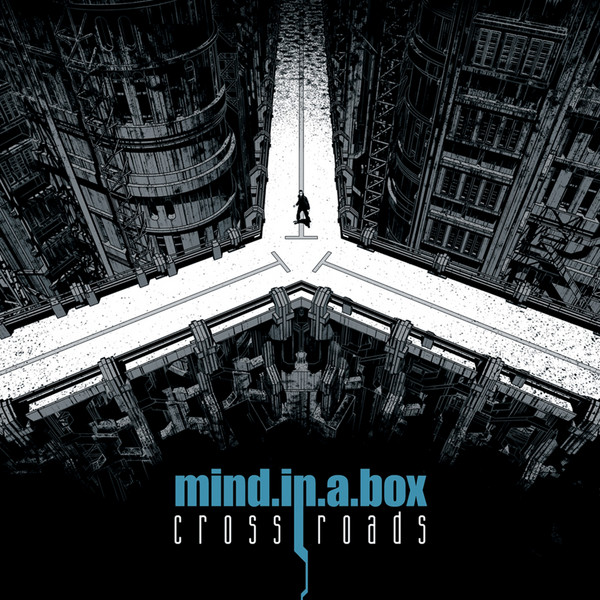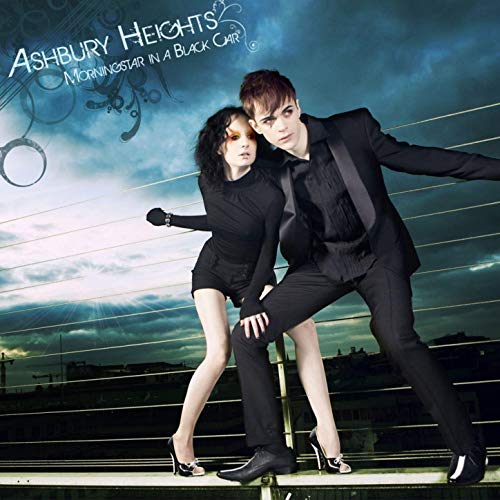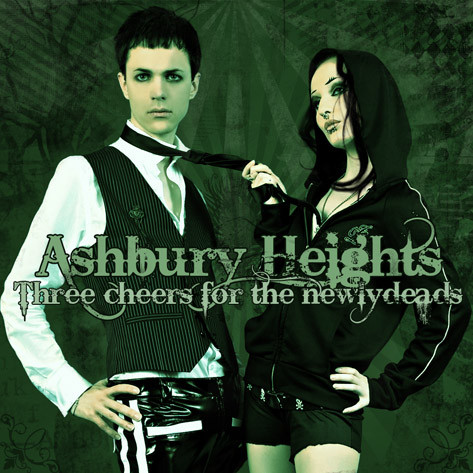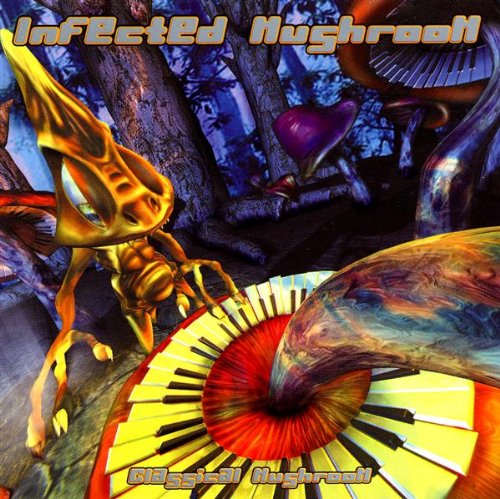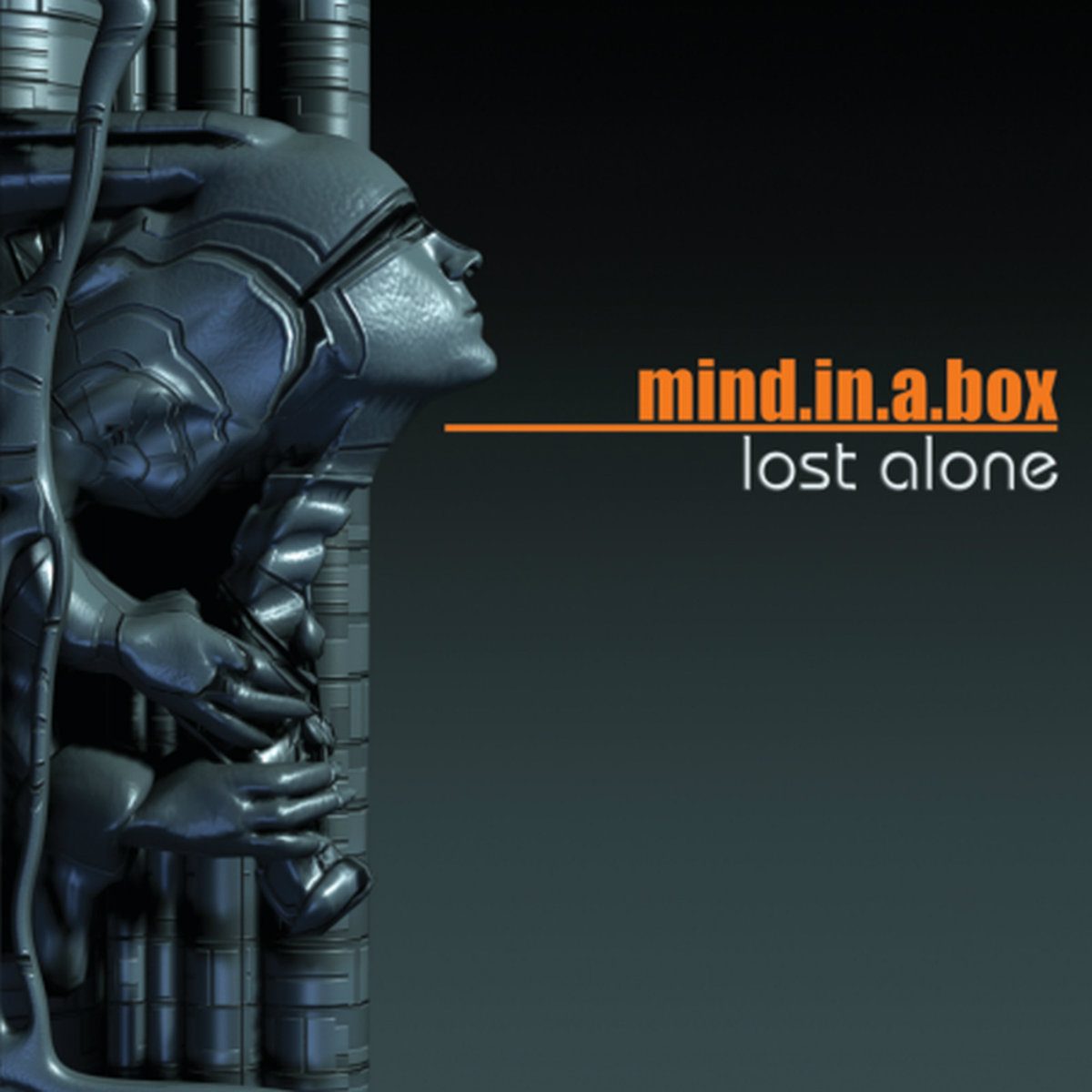Album links
Bandcamp: n/a
Soundcloud: n/a
Spotify: https://open.spotify.com/album/0kfUvTWsUJnIkCDj1zkDLS?si=jXpT6Ns-TzSq_iRfYevbXg
Youtube: https://www.youtube.com/playlist?list=OLAK5uy_nqiT5K2O0UP2K9BxQd-DuEB83N5sTdqyM
Introduction: What’s this a new artist? You may have thought I’d be reviewing the same three artists for all eternity seeing as that has been the pattern for the first couple months of this blog, but now that it’s March, perhaps I can venture a bit further into some other favorite artists of mine (this March line was more profound when the review was scheduled to be released on March 1 but oh well. Still the first review of March).
Andy Hunter… This is extremely nostalgic for me. Maybe a bit too nostalgic… You see, Andy Hunter was the very first. The very first artist that I heard that made me want to delve into electronic music. He was my number one artist for quite some time. However, seeing as I’m only now getting to him, I clearly consider him to have backslid a bit (Mind.in.a.box is currently winning, recently stole that spot from Infected Mushroom). Will I have some bias in this review? Well, music is incredibly subjective so I have some bias by default, but I will admit that these songs may have some emotional connection as I’ve been listening to this guy for nearly a decade now while most of my other favorite artists only reached my ears in the past five years or so. Regardless of my likely skewed ratings, I’m happy to share this piece of my childhood (early teens still counts as childhood yes?) with you.
However, before I get started, I do want to note one last thing about Andy Hunter. He is the rare occurrence of a Christian DJ/electronic artist. And because of this, a lot of his songs have subtle religious messages in them. There may be some who disagree, but having a Christian background, I can somewhat enjoy the messages I hear within these songs (though I am more prone to edgier music these days. I’ve grown to be somewhat of an agnostic to be honest). Really just wanted to give that context here and now before we got into any “lyrical analysis” (not much to speak of in this album when it comes to lyrics).
Andy Hunter – Go (7.5): Andy Hunter always does a fantastic job of introducing his albums. From Exodus to Glow (The Presence Project is a whole different animal so I’m ignoring that for now), each album/EP starts out with an energetic upbeat track to get the blood pumping. From there, the rest of the album ranges from mostly high energy songs, to the occasional more relaxing track.
Go is one of these opener songs (which was obvious from the get-go seeing as it’s the first song on the album but bear with me). The first couple minutes are admittedly calmer, but in a way, that only makes the rest of the song all the more energizing. Instead of throwing the listener directly into the energetic breakbeat tempo that makes up the majority of this track, the song begins with a simple heartbeat. And as that heartbeat plays onward, synchronizing your own heartbeat with the tempo, a stringed melody slowly builds along with some vocal synths as the song slowly builds up to its full potential
And then after a couple of record scratches and an echoing cry of the song’s title, that energetic breakbeat kicks in. Andy reintegrates those strings from the build-up into this more energetic portion and introduces some groovy basslines and computerized vocals (along with some other melodies and textures, but I find them to be less important compared to that bassline and the vocals so I’m only mentioning them in parentheses).
The bassline pretty much speaks for itself. It gets its own spotlight at the tail end of the build-up before the drums take over and they’re demoted to the background. I will admit that the bass isn’t flawless in this track. The main groove definitely works, but there are some points in the song where extra elements are added on that I don’t appreciate nearly as much. The part that stands out the most is that higher pitched note that sounds like it’s part of the bassline. It’s first introduced at 2:20 and it kind of feels out of place. The rest of the song fits quite well together, not perfectly, but not noticeably bothersome like the high-pitched bass note I just mentioned. The continuation of the strings as the song progresses is really what holds this all together (also the main groovy bass that isn’t an octave or two too high).
As for the vocals, they’re pretty simplistic. I don’t have much to discuss when it comes to any of the three lines, this song has to offer. There “Go,” the singular word that serves as a namedrop of the song’s title. There’s the line “Release Yourself,” which serves as the better half of the moment occurring at the 2:20 mark. Really not much to go off of there. And then there’s the chant “Born to Worship. Birth the Freedom,” which is the most cryptic of the three lines. Those first two looked pretty meaningless on their own, but this one deserves at least a bit of an extra look.
“Born to Worship, Birth the Freedom” can be translated to the sentiment of dedicating one’s life to worshipping God, finding freedom through doing so. Rather simple message and I can see some truth behind it as I know many who find peace through religion. I don’t believe that religion is fully perfect, and that it can be abused to hurt others (which I frown upon greatly), but if it brings peace, then I can’t help but respect that.
Overall, Go is a pretty good opener. It’s by no means perfect, definitely has some flaws, but it’s a good beginning to a good album.
Andy Hunter & Lyle Day – Wonders of You (8.25): So now that Go has established the breakbeat tempo that the first third of this album relies on, Wonders of You doesn’t bother itself with two-minute of build-up to reestablish itself. It does take about thirty seconds for that beat to fully establish itself, but compared to the two minutes of peace that began in Go, these thirty seconds have a lot more energy. Not saying that makes this intro better or worse. Just noting the difference.
One other thing to note as we move on from Go to Wonders of You is the transition. Exodus is an album that prides itself on flowing from one song to the next seamlessly. If it weren’t for the fact, that I knew this album so well (Been listening to it for a decade), I might not even notice as we transition from one song to the next. This transition is a bit less interesting than some of the later ones, as it relies on nothing but shared ambience. Still, I think it’s a noteworthy element to experiencing this album.
Enough about the first thirty seconds of the song! What about the other 7 minutes? I’d say that this tune is an improvement over the majority of Go (Go did have a beautiful start). The bassline is much smoother as it climbs up and down throughout the song. And unlike Go, which had some less pleasant accompaniments to that bassline. Every instrument in this song blends quite well with each other. And there are so many little tidbits in there, that it’s hard to point out the best ones. This might not be as highly rated as Walking or Redefined from previous Mind.in.a.box reviews, but I think that this song still deserves at least a short bullet point list of the best elements you can find in here.
- Lyle Day jumping in there right at the 1-minute mark with an insanely energetic rap. More about the lyrics for this one later. He’s got some good wordplay between the words cross and fade in here.
- Not ten seconds later, there’s a subtle little synth that sound like echoing water droplets.
- And a minute after that at 2:10, we’ve got that quick little build-up that works as a transition to introduce the first short appearance of strings (which offer nice variety by the way). The same thing happens around the 3:40 mark and it’s just as good the second time around.
- This simple five-note melody introduced at about 2:40 is the main melody of the song (odd how it appeared so late), Other than Lyle, this is the most memorable part of the song to me.
- The way Lyle says “Fire” and “Desire” at 4:45 just stands out to me for some reason. That is all.
- The outro is mostly there to transition into Radiate, but I do enjoy how it sounds as the key changes (plus that last synth introduced at the end has a great distorted vocal vibe to it, which now reminds me of Infected Mushroom oddly enough).
The true star of the show is definitely Lyle and his two verses. Bouncing right off of Go’s declaration that we are “born to worship,” Wonders of You is a rapid-fire unconventional worship song. This isn’t a hymn, that’s for sure. Lyle only spends about 40 seconds of the song rapping, but man does he jam pack those 40 seconds with praise. I’m not the biggest fan of rap but I used to abhor it. And yet, I’ve always enjoyed Lyle’s verses. Maybe I was just enjoying the album in its entirety, but I believe they still hold up even though the album has taken a couple steps down in my general taste.
Some last-minute notes on the lyrics, I do quite enjoy that wordplay between cross and fade in the first verse as well as the energy behind fire and desire in the second verse (but I already mentioned that). I found it interesting that some of the lyrics in that second verse, there’s some references to the events within the book of Exodus, the book likely behind the name of this album. God appeared as both a burning bush and a pillar of fire to Moses and the Israelites. And there was a lot of wandering in the desert for about 40 years. Small things, but I find them interesting.
Andy Hunter – Radiate (8.75): Now this is a much better seamless transition. Not relying on ambience this time. Instead, Radiate starts with the same exact beat that Wonders of You ended with and incorporates elements of the previous song within its introduction. That main five-note melody? You can still hear it for about thirty seconds before it fades out completely. How about vocals? Well, maybe I’m just going crazy, but I think I hear someone repeatedly saying “wonder” in that intro. Doesn’t sound exactly like the vocals in Wonders of You, but that could be because Wonders of You had some more distortion on that chorus.
But that’s just the transition, the first minute of the song. As the longest song on the album, we still have seven and a half to go. What does it have for us? Well there’s that trance drumbeat for starters. I think I’ve established well enough in my Infected Mushroom reviews that Trance has a great tempo, and while Andy Hunter is in no way psychedelic, there is a nice sliding feel between the snares on the second and fourth beats. Any BPM between 135 and 145 is an excellent drive. This song just barely reaches into the low end of that.
Anyways, enough rambling on and on about the little things (I sure do love going in depth this week). Perhaps I should talk about some highlights within this song. Radiate is one of those Journeys through Sound (initially and frequently mentioned in Infected Mushroom reviews). And because of that there is so many different moments I could look at within this song. I am going to have to leave a few out as I have noticed I am getting a bit lengthy here in this review. I need to tone it down a notch.
Let’s have a little intermission with the lyrics before I continue on with my favorite elements of this song. Just switching things up a little. I shan’t be long here. Radiate appears to be focused on letting God into one’s self, his perfection permeating through the soul, shining brightly so that it shows throughout one’s life. And that’s all there is to say about that. The wording of it is a bit violent though. Radiation, Eradication. Burning. Very destructive words. Ah well on to the rest of the music
In addition to this song being a Journey through Sound, I also want to highlight another element I enjoy in several songs, Build-ups from Nothing. There are two points in the song where the beat completely drops out of the picture and all that remains is ambience and a simple melody. A calm in the middle of the storm if you will. But the silence doesn’t last forever. It can’t. But it wouldn’t do to suddenly interrupt this soothing calmness either. So instead, the song builds upon that calm beginning. Slowly but surely, the song returns to its past power. The two build-ups included with this song are rather similar to each other in form. Both start with that ambience. Both have a similar melody. Both introduce the sliding snares part way through (before introducing the kicks). The only real difference is that the first one has a piano at the beginning, meaning the electronic melody has to battle with the piano for the spotlight (piano obviously wins). However, the piano is absent from the second build-up allowing the other melody to have a chance in the spotlight (after getting creamed by that piano). Well, both build-ups are amazing (no pun intended considering the next song) and definitely stand as my favorite parts of the song.
Before I move onto the next song, I want to quickly highlight a few more little parts of the song that I feel deserve noting. First off, there’s that bass that introduces itself midway through the song after the second Build-up from Nothing. It definitely overtakes the song at that point, giving it a slightly harsher feel as it throbs along with the beat. Another thing that I enjoy in this song is the strings. They don’t reach the same levels as the beginning of Go, but they are quite good. They serve mostly as transitions into those Build-ups from Nothing (A lot of what I love about this song seems to center around those) and at the end of the song as we prepare for Amazing.
Andy Hunter & Christine Glass – Amazing (7.75): Amazing kind of breaks the seamless transition that this album has. There’s a moment of silence at the end of Radiate which means that it doesn’t matter what Amazing starts with. It has nothing to work with. Ah well. The introduction still does share some similarities with the conclusion of Radiate. Both feature a heavy amount of strings. Both are at a very similar BPM (though Amazing takes a little while to get started so that BPM isn’t immediately apparent). I guess that counts somewhat as a transition, but it’s the least interesting transition on the album if so.
Amazing has vocals though. Not slightly filtered vocals from Andy Hunter himself. No, these vocals come from Christine Glass. This song and the four after it make up what I’m going to call the female vocal half of the album. Each of them features a different female vocalist, though some are less integral to the song than others. For this song, Christine Glass is definitely integral. Her soft vocals are smooth as glass (pun definitely intended) and are definitely the most memorable part of the song. The strings come as a close second, but they blend in so well with Glass’s vocals that I almost think of them as an extension of that beauty. Whenever the strings are present, I have a tendency to ignore all the other instruments as they simply can’t compare. There’s a good bassline, and a couple little melodic touches (though the main melody is kind of eh). Overall, the music of this song works well enough. Maybe, a balance could be given so that other instruments mattered more, but there’s nothing in there that I outright dislike so that’s a plus (the next song won’t be as fortunate).
Lyrically, this song isn’t as religiously focused as some of the other tracks on the album. It do believe the intention was to be a song focusing on experiencing the majesty of God’s power, allowing us to experience things beyond our comprehension. But without the context of Andy Hunter’s tendency to write song’s religiously, it sounds more like a love song. I don’t mind either way, but as of this point in my life, I’m not really drawn to either option either.
Andy Hunter & Michelle Prentice – Show (4.5): As Amazing ends with a whisper, it leads into Show, one of the calmer songs on the album. It is also the worst song on the album. Sorry for the harsh words, but even the best albums have to have a song that takes that spot. Ah well, let’s go backwards and talk about the lyrics first, because they’re relatively simple and I really would rather conclude my thoughts on this song by discussing a certain instrument…
Show me glory. That’s it. That’s pretty much all the lyrics. There is a bridge in the middle of the song which has Michelle saying a couple of lines about Opening one’s eyes and heart to God as well. But I don’t have much to say about those either. There that’s all of that. Wouldn’t that be a shame if I ended this particular summary with this lame paragraph about lyrics. On to the music!
I’d say a good half of the instruments in this song are beautiful and relaxing. The slow tempo works well for the relaxing mood, not to mention some of the moments that focus a little more on ambience. As for vocals, most lyrics are said with a whisper. The female vocals in the background are a nice touch, both the clean unedited version and the more synthetic choir that is added in from time to time. The bridge is a sight bit strange, but I do feel like it makes a good centerpiece to the song. If only the rest of the song was like this…
The bassline doesn’t fit. It has a nice long rolling feel to it, and I would consider it to be one of the better parts of the song, but it doesn’t quite fit with the rest of the relaxing stuff. But that doesn’t compare to the screechy synth that is completely out of place. It first appears at 2:17 and I find it to be quite annoying. But the real nail in the coffin is just a tiny little beep. I’ve looked across countless versions of the song hoping the beep was just a glitch but no. It’s there and it ruins an otherwise decent song. Am I perhaps complaining a bit too much? Maybe. But this little beep breaks the song in a jarring manner. I find it to be a bother every time it interrupts the otherwise smooth experience and gives me a slight bit of a headache. If it were absent, this song might get a higher score, but this song is a disgrace to the rest of the album anyway.
Andy Hunter & Cathy Burton – Translucent (7.25): While Show could have been the most relaxing song on the album, it ended up flopping spectacularly as Andy Hunter’s worst. And so instead we have Translucent as the most relaxing song on the album. And it is a major improvement. Everything here is pure relaxation, no weird trippy divisive instruments and absolutely no annoying beeping. This song is truly a beauty to listen to. If Show’s main goal was to beg for glory to be shown, then Translucent does just that by taking the ambience from show and building it into a glorious introduction.
Much of the song is simply ambience fading in and out throughout the verses. It’s not exceptionally interesting, but Cathy’s vocals (which are the best vocals on the album) do well to prevent the lack of variety from becoming a bore (there’s not even any drums here). The chorus is a bit better with adding some stuff in there. There are some very subtle drums as well as a simple melody added in there and it thankfully works well with the relaxing vibe the rest of the song has, which is more than I can say for Show (which I apparently love to hate seeing how often I mention it). The only instrument that I could possibly consider unfitting is the more electronic synth used in the final chorus and the outro. But it’s used subtly and doesn’t interrupt the glorious feeling so much as it adds some variety and some transitioning into the next song. This whole track is a much better example of Andy Hunter’s chiller side (the side he’s devoted his time to in recent years with his Presence Project).
The lyrical content in this one is quite intimate. The whole concept is opening one’s self to God showing your entire soul and self to him as he washed away the sin that mucks up our life. The chorus is where this concept is most explored while the verses focus a little more on God’s incredible majesty and glory. And then there’s the bridge which mentions Angelic sounds filling the air. Speaking of Angelic sounds…
Andy Hunter & Alisa Girard – Angelic (8.5): That final synth I mentioned in the last song brings us into Angelic, our first nonlyrical song of this album. Plenty of gorgeous vocals from Alisa but not a single word is voiced. This song is a transition back into the more upbeat music that I prefer from Andy Hunter, at least for this album, but it is also the most beautiful song this album has to offer.
Angelic has two main focuses, the piano and the vocals. Sure, the other instruments in there have some presence too. You can’t have a good drive without a good drumbeat and the strings and ambience definitely do some solid background work to add to the beauty that the main stars of the show create, but those main stars are definitely the vocals and the piano. And how can I describe their beauty and why this is one of the best tracks on the album? I’ve pondered how to explain it for a good while now, but there isn’t a way to explain it other than tell you how gorgeous it is. It’s impossible to really go into detail because this track is a simple beauty.
Part of me feels like somewhat of a failure of a reviewer for being unable to review this lovely song, but really, it’s something you have to experience for yourself. Just know that it’s beautiful.
Andy Hunter & Tasia Tjornhom – Sandstorm Calling (8.5): Not to be confused with Darude – Sandstorm.
This song right here is an absolute classic. I understand that a lot of these songs are great classics to me even though Andy Hunter is a slight bit more obscure than some other electronic artists from the time. He was my childhood though and this was once my favorite song from him. My opinions have shifted slightly but this still remains to be one of the most nostalgic songs for me. Other than Tasia’s occasional vocal this song is fully instrumental, and to be perfectly honest, since Tasia only has a small note here and there (no lyrics), I could probably count her as an instrument herself if I felt like it, making this the most instrumental song on the album.
But this song doesn’t need vocals to be one of the greatest songs on the album. Right from the start the song transitions smoothly from angelic with a heart pounding drumbeat shared between the ending and beginning of the two songs respectively. And when I say heart pounding, I mean it literally. This drumbeat sounds like a combination of a heartbeat and some heavy breathing and it has the same effect as the drumbeat from Go at the beginning of the album, except this time that heart is pounding a little bit faster. Also, it comes back into play a couple more times in the song where Go’s heartbeat only really mattered for the intro.
The most prominent and memorable part of this song would have to be the horns that play the main melody. It’s not so prominent that it feels overused, but it is definitely the clear motif of the song if it has one. Besides the most obvious iterations of the melody shown at 1:27, 2:36 and 5:37, there are several subtler points where the melody is used. From fairly obvious parts such as the fractions of the melody played in the song’s introduction to slightly more hidden points such as the quieter melody underlying the song whenever we aren’t in full melody mode (or build-up from nothing mode but I’ll get to that). Everything else the song has to offer, the basslines, the strings and Tasia’s vocals, contribute to the mystical feeling this song presents to me. Nothing feels out of place. Everything works together.
My favorite part of the song, of course, has to be the build-up from nothing. After the second chorus of the motif melody we reach the midpoint of the song and as I’ve explained in previous songs with a Build-up from Nothing, everything drops out. The drumbeat, the melody, the bassline. All of it. Nothing remains. Well, almost nothing. Andy Hunter leaves a bit of ambience in there to work with as he refreshes the rest of instruments over time. There’s a few notes that sound like water droplets in the beginning which I love as they kind of remind me of a cave. In a way, it kind of helps me visualize the rest of the song with this short portion taking shelter from a cave in the middle of a tortuous sandstorm before the safehaven collapses. I have a vivid imagination when it comes to some of these songs, pretty sure I used to visualize a music video for this entire album when I was younger, this is the only part I remember though.
I got distracted. Let’s talk about these strings for a second. The way they’re introduced really is the heart of this build-up and the remainder of the song following it. They don’t gradually introduce themselves with a rising crescendo (unless you consider the ambience to be an introduction to the strings, though I’m pretty sure that ambience is made up of the sweeping notes of a bass (the actual stringed instrument, not just a general term for low notes). These higher strings begin at full volume along with some cinematic drumbeats to accompany them. As the stings build- growing more intense, eventually playing a quicker melody, other elements of the song are introduced and reintroduced. A new bassline joins in first followed by a return to that literally heat pounding drumbeat from the beginning. And all the while there is a slight nod to the main melody (albeit this iteration is played a bit lower so it sounds quite different in tone).
And after that build-up concludes itself, the song returns to its usual tempo and energy. This time highlighting those strings as the star of the show, once again letting them develop in a similar manner, starting off slowly and then shifting the notes around bit more rapidly as the song progresses. And with one last iteration of that motif melody chorus, we have a fantastic closure to a fantastic song.
And so, concludes the five female vocal songs of the album. Only two more to go.
Andy Hunter – Strange Dream (8.25): These last few songs on the album transition quite well between each other. Sandstorm Calling ends with a rising scream that drops right back into the breakbeat style we had at the beginning of the album. Strange Dream is a return to where we started and, living up to its name, it’s definitely one of the stranger songs on the album. Unlike the last couple of songs, this song returns to having lyrics, but if there’s a message behind them I can’t seem to figure it out at all. There’s a dream. It’s strange and funny. Only way I can think of this working biblically is one of the many stories of dream interpretations. Only problem is… none of these appear in Exodus so I really can’t tell you how that connects. Maybe Andy over here just had a strange and funny dream one time and felt inspired to build a song around the concept.
What’s the dream about? Well there’s so few lyrics, I’m afraid I can’t tell you. It’s strange and funny, I can tell you that much, but the rest of the vocals don’t give much information to work with (if any information at all). As soon as the song begins, you’ve got two lines: “You wasted basics for that, dude” and “Down, sit down, See you down.” What do they mean? Who knows! My guess is that our man Andy here has a subconscious self-criticism of how he continues to waste the basic elements of his life on… something… Also, he forces himself to sit down to try and ponder this self-criticism he has. Am I looking too deep into this and almost certainly misinterpreting any meaning Andy has for us (if anything)? Yeah. Pretty sure I am. Am I self-projecting? I don’t know possibly. Self-criticism seems to be a problem of mine, but I didn’t actually put much thought into this theory. I sort of just vomited out the first existential possibility that came to my head when looking at these either cryptic or random lyrics. Maybe my subconscious is the one we need to look into…
Ok, well regardless, of how vaguely I try to analyze these lyrics, the penultimate song of Exodus does have some pretty good music on it. After the introduction is done about a minute in, the song returns to four on four, which I find to be a bit disappointing (Syncopation is such a pleasure of mine). Still, the conventional drumbeat doesn’t interfere with the rest of the song. There’s some great bass design throughout, be it the harsh funky notes in the intro, the nearly arpeggiated pattern that plays for most of the song or the cleaner lower synth that joins in around the three-minute mark (though to be fair this could count as a melody).
This song divides itself into two different vibes. There’s the upbeat vibe that takes up the majority of the song and a couple of calmer breaks at each third-way mark in the song. I’ve already talked extensively about the former when it comes to the basslines as that’s the most prominent focus there. There is a synth that I haven’t mentioned that has a nice swing to it and plays the main melodies of the upbeat four on four areas of the song. Plus, there’s a couple of points in the song where an extra instrument is layered on top of the arpeggiated bass to give it a much-welcomed accent.
The latter of these two vibes is the calm between the storms (not sandstorms, that was the last song). The song takes two short breaks to strip away the kicks and basslines from the song, creating a more relaxing environment focusing more extensively on melody and strings. There’s a chilling main melody in here that gives me extra nostalgic vibes for some reason (even more nostalgic than the usual Andy Hunter and I honestly don’t even remember it somehow so there’s definitely something fishy going on in my subconscious music memory). Regardless, I enjoy these two portions of the song the best. I wouldn’t say they’re build-ups from nothing, but at the end of each one “Strange and funny dream,” tends to get me a smile. I especially get a kick out of the “straaaaaaaange andfunnydream” at the end of the first calmer portion. As strange (and funny) as they are, these vocals are definitely the selling point on this song.
Andy Hunter – Intercessional (7.25): Final transition of the album smoothly leads us into Intercessional with a bassline not all that different from the main one in Strange Dream. It’s a bit higher in pitch, but the rhythm is quite similar (though I think I prefer Strange Dream’s). However, this bassline is only important half of the time in this song as Andy continuously switches back and forth between the already mentioned bassline and a second rhythmic bassline introduced about a minute in, which I find to be a bit smoother. I prefer the latter of these to be honest. That smoother vibe is definitely better in my opinion.
As for the rest of the song, I’m not all that impressed. It’s still a good song but compared to all of the other stuff we’ve seen in this album. The singular melody that this song seems to have isn’t especially interesting except for the ending of it’s first iteration where we spend a small few seconds with that syncopated drumbeat. Some of the best few seconds of the song, though the rest of the melody just doesn’t carry the song very well.
After those few seconds of breakbeat, the song does reach a calm as it prepares for a small build-up from nothing. There’s a decent choir introduced in there (which is used throughout the remainder if the song which is a welcome bit of variety), and the breakbeat drums do continue as the song builds up. Some good subtle touches here and there make the build-up work quite well It’s nowhere near as remarkable as the build-ups in Go, Radiate and Sandstorm Calling, but beating those songs is a tall order anyway.
As for the lyrics, there’s not really much deep to go into. The song is called intercessional. An intercessional is a prayer. The song is about prayer. The song is about an intercessional. It’s all pretty self-explanatory.
Overall, this is a pretty weak closer for the album. The song is good and all, but it doesn’t reach the same heights as many of the other songs on the album.
Conclusion: that review was a lot longer than I’d expected it to be. A good half of the songs had full on essays of things to talk about which might be a bit excessive (even my Mind.in.a.box reviews are shorter than this and they have more songs plus a whole narrative to deal with). Regardless, I definitely enjoyed immersing myself into the intricacies of Andy Hunter’s early works. The album does have some flaws (take a look at Show, his worst song), but overall, it’s been a great nostalgic experience working on this review. As much as I had to say in the body of this review, this conclusion is pretty short. I guess I already summed it all up.
Final Score: (7.75/10)


